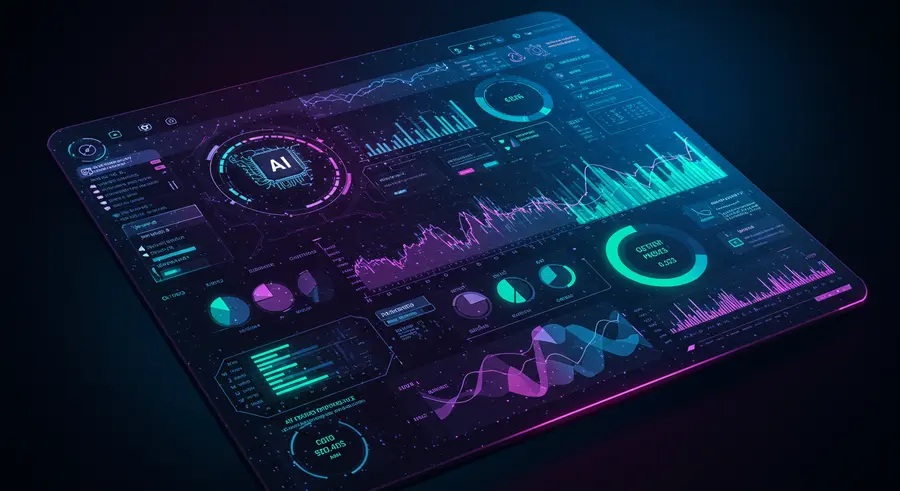Appearance

Welcome, web enthusiasts and speed demons! 👋 In today's hyper-connected world, web performance isn't just a feature; it's a necessity. Slow loading times can lead to frustrated users, higher bounce rates, and even impact your search engine rankings. But what if we told you there's a powerful ally emerging to supercharge your website's speed and efficiency? Enter AI-Driven Web Performance Optimization! 🚀
Artificial Intelligence is no longer just a buzzword; it's rapidly transforming how we build and optimize web experiences. By leveraging AI, developers can move beyond traditional, reactive optimization methods to a proactive, intelligent approach that keeps your website blazing fast.
Why AI for Web Performance? 🤔
Traditional web performance optimization often involves manual analysis, trial-and-error, and a deep understanding of complex metrics. While effective, it can be time-consuming and sometimes misses subtle opportunities for improvement. AI changes the game by:
- Automating Analysis: AI algorithms can process vast amounts of performance data, identifying bottlenecks and patterns that human eyes might miss.
- Predictive Optimization: AI can predict future performance issues based on current trends and user behavior, allowing for proactive adjustments.
- Real-time Adaptation: AI-powered systems can make real-time optimizations, adapting to changing network conditions, device capabilities, and user interactions.
- Personalization: Deliver content and experiences optimized for individual users based on their context and preferences.
Key Use Cases of AI in Web Performance Optimization 💡
Let's dive into some practical ways AI is revolutionizing web performance:
1. Smart Resource Loading and Prioritization 🧠
Imagine your website intelligently deciding which resources (images, scripts, stylesheets) to load first, based on user behavior and predicted interactions. AI can:
- Predictive Preloading: Analyze user navigation patterns to preload resources for pages they are likely to visit next.
- Dynamic Image Optimization: Automatically determine the optimal image format and compression level for each user's device and network conditions.
- Critical CSS Generation: Identify and inline only the CSS necessary for the above-the-fold content, improving perceived loading speed.
2. Automated Performance Testing and Monitoring 📊
AI can take the burden out of continuous performance testing:
- Anomaly Detection: AI can detect unusual performance drops or spikes that indicate underlying issues, often before users even notice.
- Automated Root Cause Analysis: Beyond just flagging issues, AI can help pinpoint the exact cause of a performance degradation, saving valuable debugging time.
- Intelligent A/B Testing: Automatically run performance A/B tests and identify which changes yield the best results.
3. Content Delivery Network (CDN) Optimization 🌐
CDNs are crucial for fast content delivery, and AI can make them even smarter:
- Intelligent Edge Caching: AI can optimize caching strategies at CDN edge locations, ensuring that content is served from the closest and fastest server.
- Traffic Routing Optimization: Dynamically route user requests to the most optimal server based on real-time network conditions and server load.
4. Enhancing Core Web Vitals with AI ✨
As discussed in our Optimizing Core Web Vitals article, these metrics are vital for user experience and SEO. AI can directly contribute to improving them:
- Largest Contentful Paint (LCP): AI can prioritize the loading of the largest content element, ensuring it appears quickly.
- First Input Delay (FID): By optimizing JavaScript execution and reducing main-thread work, AI can help ensure a smooth and responsive user experience.
- Cumulative Layout Shift (CLS): AI can analyze and predict layout shifts, helping developers prevent them before they occur.
Examples in Action 🧪
While many AI-powered performance tools operate behind the scenes, here's how they manifest:
- E-commerce Sites: An AI might notice a user frequently browsing a certain product category. It then prefetches images and product details for similar items, making subsequent clicks feel instantaneous.
- News Portals: An AI can analyze trending articles and user engagement to dynamically adjust content loading priorities, ensuring that the most relevant and popular stories load fastest for each user.
- Single-Page Applications (SPAs): AI can learn common user flows within an SPA and strategically preload data for upcoming views, eliminating perceived delays.
The Future is Fast and Smart! 🚀
The integration of AI into web performance optimization is not just an incremental improvement; it's a paradigm shift. It empowers developers to build faster, more resilient, and more user-centric web experiences with less manual effort. As AI technologies continue to evolve, we can expect even more sophisticated and autonomous performance optimization solutions.
So, are you ready to embrace the intelligent future of web performance? Start exploring how AI can give your website the ultimate speed boost! 💨